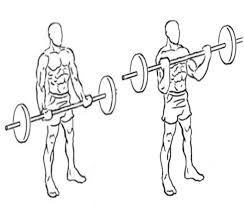
While you may be just starting your career as a personal or nutritionist, you still don't have the right tools. Talking to other certified trainers is a great way to learn about the challenges and rewards of being a personal or nutritionist. You can find many online resources that will help you learn more about the various aspects of health and fitness and the challenges that you might face as a new trainer.
Exams
Exams for nutritionist and personal trainer certification are important steps in your journey to becoming a certified fitness professional. There are many online resources that can help you prepare for these exams. Some of these programs offer practice exams online, which makes it easy to practice before you take the actual exam. You can print your certification once you have passed the exam.

One of the most recognized certifications in nutrition is Precision Nutrition Level 1. This course combines science and coaching skills in behavior-change. You can complete the coursework online in less than six months. You can also use the program to train personal trainers or nutrition consultants.
Certification
To be a successful personal or nutritionist, it is necessary to obtain the appropriate credentials. Many institutions offer certifications in nutritionist and personal training. These certifications can be taken separately or combined. There are many benefits to obtaining these certifications. They can help you increase your earning potential in fitness.
Personal trainers or nutritionists assist individuals in losing weight, strengthening their bodies, and improving their overall health. They have a deep understanding of the needs and goals of their clients. It's a good idea for personal training and nutritionists to have practical experience.
Limitations of a personal coach and nutritionist
The job of a personal nutritionist and trainer has some restrictions. First of all, clients must be certified or licensed to provide nutrition counseling. Registered dietitians and medical practitioners are better equipped to provide nutrition advice.

Personal trainers cannot also diagnose medical conditions or recommend dietary supplements. A personal trainer should be certified in nutrition and dietitian. This is crucial because supplements for fitness can cause severe side effects and it is not a good idea to take them without first consulting your doctor. For example, herbal supplements can be toxic if taken in excess or when combined with prescription medication.
FAQ
Can I eat while I'm exercising?
Yes. You can eat what you like while you work out. Low-calorie snacks like watermelon and carrots, celery apples, bananas, grapes, celery, celery, celery, celery, celery, apple, bananas, and carrots are best. These foods contain nutrients that help you perform better during workouts.
Do I need to drink alcohol while working out?
Alcohol has calories, so it's not recommended to consume large amounts while working out. Moderate alcohol consumption (one drink per week) can help increase endurance during training. It may also reduce fatigue and muscle aches caused by intense exercise.
Does exercise cause me to gain weight?
Not at all. Actually, exercising can help you to maintain your current weight. Regular exercise will help you build muscle and boost your metabolism. This will allow you to burn more calories every day. This means you won't store as much fat in your body.
Are there any exercises that I shouldn't do or should I?
Before starting any new exercise program, you should consult your doctor. Some people have injuries or medical conditions that prevent them from doing certain types of exercise. You may also need special equipment or training for certain activities. Swimming requires you to have a swimsuit and access to the pool.
Which Is More Important: Exercise or Diet?
The answer depends on what you want to achieve. The most important thing to do if you are looking to lose weight is diet. However, if you want to gain muscle mass, then exercise is the most important factor for building muscles. The last factor is sleep, which only impacts how well you perform during your day.
Statistics
- In 2018, the World Health Assembly agreed on a global target to reduce physical inactivity by 15% by 2030 and align with the Sustainable Development Goals. (who.int)
- One study showed that adults who watch more than 4 hours of television daily had an 80% higher risk of death from cardiovascular disease. (heart.org)
- According to the Centers for Disease Control and Prevention, chronic diseases cause 7 out of 10 deaths in the U.S., and treating chronic diseases accounts for 86% of U.S. healthcare costs. (mana.md)
- Adolescent girls were less active than adolescent boys, with 85% vs. 78% not meeting WHO recommendations of at least 60 minutes of moderate to vigorous intensity physical activity per day. (who.int)
External Links
How To
How to Lose Belly Fats More Fast
Belly Fat is usually seen as a problem when we want to lose weight. However, Belly Fat can be beneficial if you really think about it. It is the fat in your stomach that protects your organs. Let's learn how to quickly burn belly fat.
The main factors that lead to body fat storage are stress and lack exercise. The cortisol hormone stimulates stress which makes us hungry. Cortisol levels are increased by insulin. The excess calories stored as fat are then stored by insulin. Insufficient sleep can lead to an increase in appetite and adrenaline release. These extra calories are broken down through exercise.
There are many different ways to reduce bellyfat. Any one of these can be tried, depending on how much you have to spend. These are some ways to quickly lose belly fat.
-
You can eat less. Instead of eating three large meals per day, try to eat smaller meals. You will eat less calories in general.
-
Drink plenty of fluids. Water flushes out toxins, and keeps your body hydrated. Drinking water prior to every meal will ensure that you are satisfied for longer periods of time and won't eat too much.
-
Avoid eating unhealthy snacks. If you're looking for quick fixes, snack foods like chips, cookies, candies, etc. Although tempting, they can be very unhealthy. But avoid these fattening treats as they contain lots of empty calories and too much sugar. Choose healthier alternatives such as whole grains, vegetables, fruits, seeds, nuts and seeds.
-
Strength training should be performed at least 3 times per week. Strength training builds muscle mass which burns more calories even while resting. It strengthens bones muscles ligaments, tendons and the heart.
-
Walking or stretching is a good habit to do regularly. Stretching helps to improve flexibility and mobility, which reduces back pain. Walking is great for burning calories, especially brisk walking for 30 minutes.
-
Reduce alcohol intake. Reduce alcohol intake. Alcohol is a waste of calories and has no nutritional value.
-
Reduce your weight gradually. Your current weight is the first step to losing weight. Calculate your ideal weight by adding approximately 5% to 10% of the total weight. Once you have calculated your target body weight, you can begin to cut calories by 500-1000 calories every day until your goal is reached.
-
Avoid processed foods. These foods contain high levels of sugar, salt, and preservatives. While processed foods can be convenient, they don't offer enough nutrients to ensure your health.
-
Don't skip breakfast! Breakfast improves concentration, memory, energy, and stamina. Breakfast should contain protein (like eggs), fibre (like oats), as well as complex carbohydrates (like oatmeal).
-
Have regular bowel movements. Constipation or irregularity can lead to gas and bloating. You can prevent this by drinking lots of water and increasing your fiber intake.